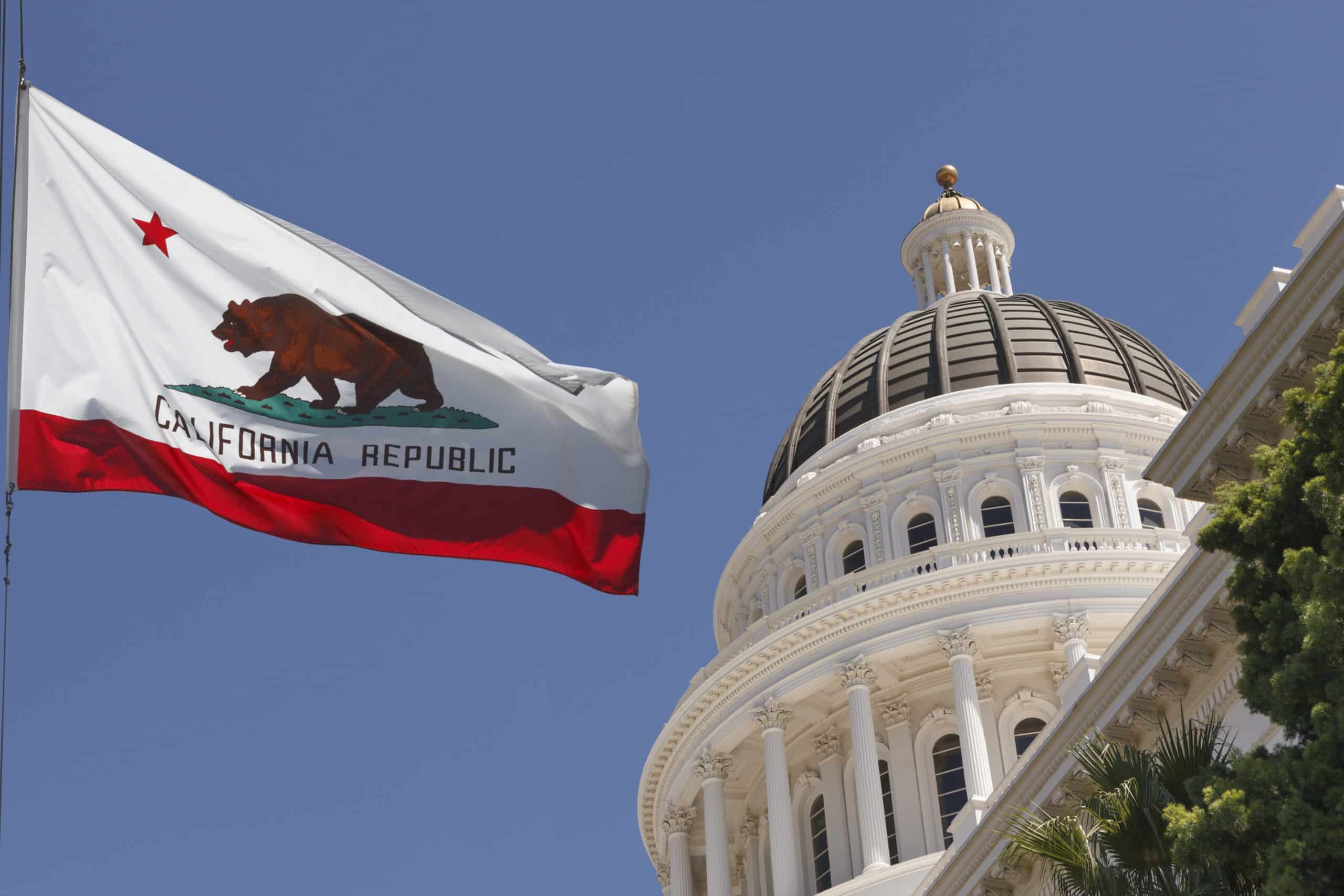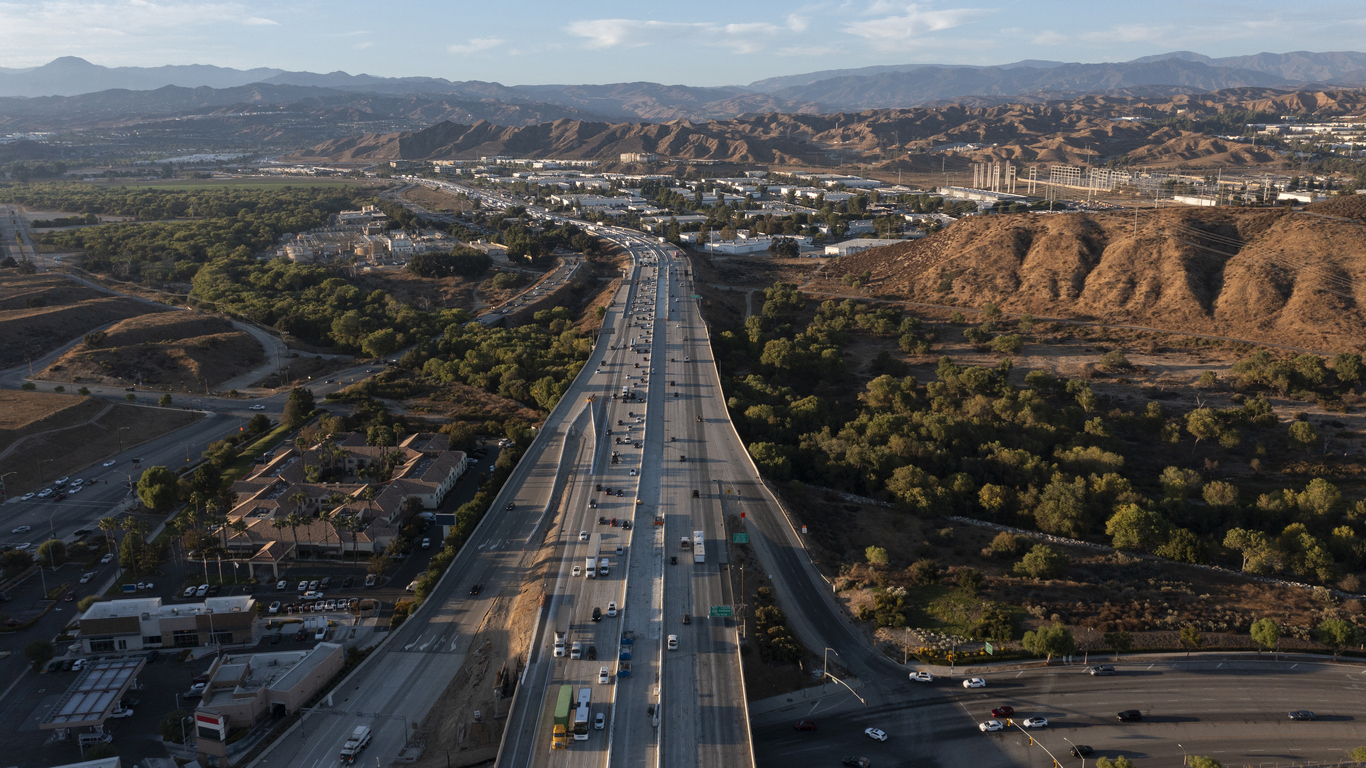23% of California Democratic Primary voters support Newsom for 2028 presidential bid
A new Emerson College Polling survey of California voters finds former Democratic Representative Katie Porter leading the primary for California governor with 18%, followed by Republican political commentator Steve Hilton at 12%, Riverside County Sheriff Chad Bianco at 7%, and former Democratic Los Angeles Mayor Antonio Villaraigosa at 5%. A plurality of voters (38%) are undecided.
“With Kamala Harris officially out of the race, Katie Porter has emerged as the Democratic frontrunner, increasing her support from 12% to 18% since the April Emerson poll,” Spencer Kimball, executive director of Emerson College Polling, said. “Steve Hilton, who was not in the race in April, has jumped to 12%, while the share of undecided voters has dropped from 54% to 38% over the summer. Porter leads among voters over 50 (22%), those with a postgraduate degree (35%), and white voters (23%).”
Looking ahead to the 2028 presidential nomination contest, Governor Gavin Newsom leads the Democratic primary with 23%, followed by former Secretary of Transportation Pete Buttigieg at 17%, Vice President Kamala Harris at 11%, and Representative Alexandria Ocasio-Cortez at 9%. In the Republican primary, 40% support Vice President JD Vance, 10% support Health and Human Services Secretary Robert F. Kennedy, and 9% Florida Governor Ron DeSantis.
Governor Gavin Newsom holds a 44% job approval rating, and 38% disapproval. President Trump holds a 30% job approval among California voters, and 58% disapproval.
On the generic congressional ballot, Democrats have a 22-point advantage: 54% support the Democratic candidate while 32% support the Republican; 15% are undecided.
A third of voters (33%) support the proposal to redraw California’s congressional map ahead of the 2026 Midterm Elections, while a quarter (25%) oppose; 42% are unsure.
“Support to redraw the state’s congressional map ahead of the Midterm Elections is strongest among Democrats by a 23-point margin, 42% to 19%, and opposed by an eight-point margin among Republicans, 36% to 28%. A majority of independent voters are unsure, while 25% oppose and 23% support,” Kimball said.
The economy is the top issue for 30% of California voters, down from 40% in April, followed by housing affordability at 19%, immigration at 15% (up from 7% in April), threats to democracy at 13%, and healthcare at 8%. Housing affordability is 14 points higher for California voters compared to U.S. voters overall, while concern for threats to democracy is ten points lower than the national poll.
A majority (61%) of California voters view tariffs as more of a tax on U.S. consumers, while 26% view tariffs as a tax on the foreign country.
- Democrats view tariffs as a tax on the consumer, 79% to 11%, while Republicans see tariffs as a tax on the foreign country, 54% to 32%.
A majority of California voters (60%) think mass deportations of undocumented/illegal immigrants in California are a bad thing, consistent with the April Emerson poll; 40% think mass deportations are a good thing.
Forty-nine percent of voters think the California government should spend more on firefighter staffing and equipment, knowing that increased funding may require a tax increase, down from 62% in February; 43% think the government should spend the same, up eight points from February, and 8% think it should spend less.
Just over half of California voters (51%) agree that Los Angeles is an ideal host city for the 2028 Summer Olympic Games, while 27% disagree. Twenty-three percent are unsure.
- Black voters (64%), voters aged 30-39 (57%), male voters (54%), and college-educated voters (54%) most agree that Los Angeles is an ideal host city for the Olympics.
- Republican voters (42%) and voters aged 50-59 (33%) are most likely to disagree that Los Angeles is an ideal host city for the 2028 Summer Olympic Games.
Methodology
The Emerson College Polling California survey was conducted August 4-5, 2025. The overall sample of California active registered voters, n=1,000, has a credibility interval, similar to a poll’s margin of error (MOE), of +/- 3 percentage points. The Democratic Primary has a sample size of n=444 likely primary voters with a credibility interval of +/- 4.6. The Republican Primary has a sample size of n=221 likely primary voters with a credibility interval of +/- 6.6%. The data sets were weighted by gender, education, race, age, party registration, and region based on U.S. Census parameters and voter file data.
It is important to remember that subsets based on demographics, such as gender, age, education, and race/ethnicity, carry with them higher credibility intervals, as the sample size is reduced. Survey results should be understood within the poll’s range of scores, and with a confidence interval of 95% a poll will fall outside the range of scores 1 in 20 times.
Data was collected by contacting a voter list of cellphones via MMS-to-web text and emails (lists provided by Aristotle), and an online panel of voters provided by Commonwealth Opinions Panel and CINT. Panel responses were matched to the Aristotle voter file using respondents’ full name and ZIP code. The survey was offered in English.
All questions asked in this survey with the exact wording, along with full results, demographics, and cross tabulations can be found under Full Results. This survey was funded by Emerson College.






